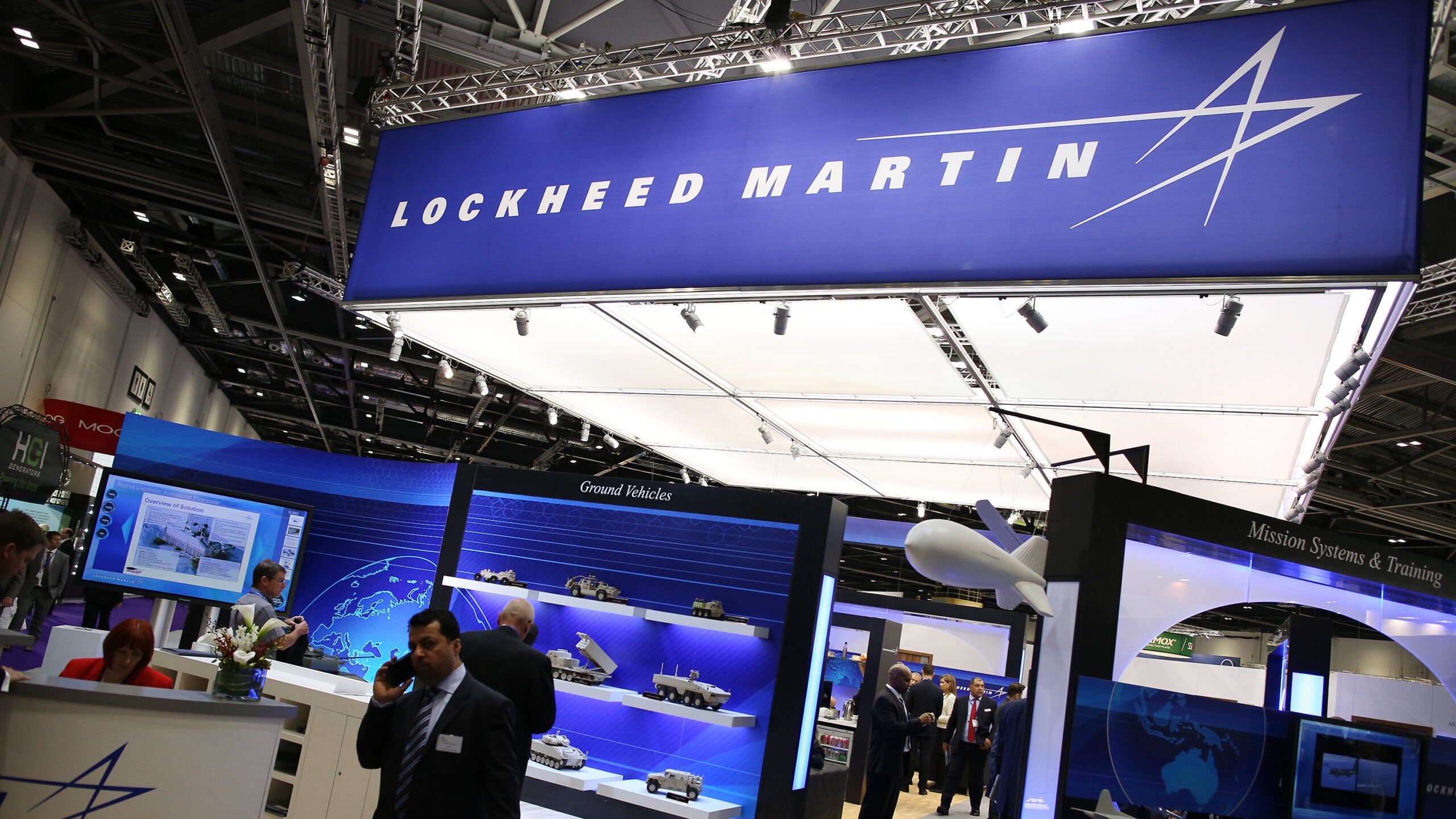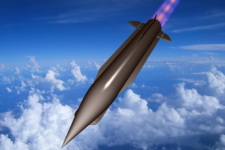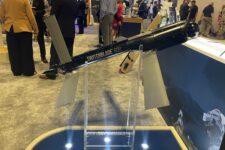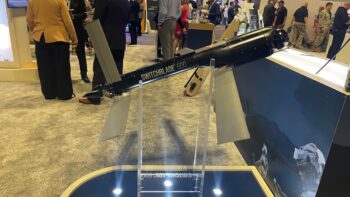
The Lockheed Martin stand at the Defence and Security Exhibition on September 10, 2013 in London, England. (Photo by Peter Macdiarmid/Getty Images)
This report was updated Jan. 25, 2022 at 11:41 am ET with additional statements from Lockheed Martin CEO Jim Taiclet and the FTC, at 1:21 pm ET with additional comment from the Pentagon, and at 1:45 pm ET with a statement from Sen. Elizabeth Warren.
WASHINGTON: The Federal Trade Commission has filed suit to block Lockheed Martins’ proposed $4.4 billion acquisition of Aerojet Rocketdyne over concerns about competition in missile manufacturing, the agency announced today. The announcement came as Lockheed held an earnings call with investors.
“As disclosed in our earnings release this morning, we thought it highly likely that the FTC would sue to block the transaction,” Lockheed Martin CEO Jim Taiclet said during the morning call. “Since that time, we have received notification from the FTC that they have in fact authorized filing a lawsuit. We will review the lawsuit and evaluate all of our options. With the filing of this, we may elect to defend a lawsuit or terminate the merger agreement.”
Earlier this morning, Lockheed and Aerojet released statements indicating that the companies had paused the merger after the FTC advised that “its concerns regarding the transaction cannot be addressed adequately by the terms of the proposed consent order.”
According to Taiclet, Lockheed now has 30 days to choose between defending the lawsuit or allowing the deal to fail. Taiclet, during the earnings call, did not indicate which path the company is likely to take.
Regulators, some lawmakers and defense industry executives such as Raytheon Technologies CEO Greg Hayes have raised alarms about the proposed deal, arguing that Lockheed — the nation’s largest defense prime — should not be permitted to absorb the nation’s only remaining independent supplier of solid-fuel rocket motors.
Those concerns were reflected in FTC’s announcement of its suit today.
“Lockheed is one of a few missile middlemen the U.S. military relies on to supply vital weapons that keep our country safe. If consummated, this deal would give Lockheed the ability to cut off other defense contractors from the critical components they need to build competing missiles,” said FTC Bureau of Competition Director Holly Vedova. “Without competitive pressure, Lockheed can jack up the price the U.S. government has to pay, while delivering lower quality and less innovation. We cannot afford to allow further concentration in markets critical to our national security and defense.”
Throughout the controversy, the Pentagon has remained silent about its position on the proposed sale. According to the FTC, the department reviewed the deal and facilitated interviews between the FTC and key stakeholders.
But during a gaggle with reporters today, Pentagon spokesman John Kirby declined to provide details on the department’s findings, which it provided to the FTC in a December letter from Deputy Defense Secretary Kathleen Hicks.
“Because our information was used for internal deliberations, I cannot share the department’s recommendations,” he said.
Sen. Elizabeth Warren, a Massachusetts Democrat who had staunchly opposed the deal, applauded the FTC’s action in a statement. (Raytheon is headquartered in Warren’s home state.)
“After decades of mergers, the defense industry is left with a few giant firms that aim to buy up key suppliers and stomp out competition,” she said. “The FTC’s lawsuit to block Lockheed Martin’s proposed acquisition, which has unanimous, bipartisan support from the Commissioners, is critical. Past anticompetitive deals, such as Northrop Grumman’s similar 2018 acquisition, were approved by antitrust agencies with so-called ‘behavioral’ remedies, but those deals should never have proceeded in the first place.”
Meanwhile, others on Capitol Hill had previously come out in support of the deal. In an August letter to Hicks, 13 lawmakers contended that Northrop Grumman’s 2018 acquisition of competing solid-fuel rocket motor supplier Orbital ATK had disadvantaged Aerojet, which needs to merge with a larger company in order to secure its future.
Lockheed has maintained it would be a fair “merchant-supplier” of rocket motors, even while competing against other defense firms for programs requiring Aerojet products. The company had proposed a number of “merchant supply and firewall commitments,” according to the statements by Aerojet and Lockheed.
Lockheed executives — who see the deal as critical for growing the company’s space and hypersonic business — have remained hopeful that the acquisition would ultimately be completed despite minor delays. Taiclet indicated in October that an agreement would be finalized within first quarter of 2022.
Army wraps up FLRAA PDR, incorporating special ops design changes
According to a SOCOM official, the Army included feedback from the command that led to design changes like hardware for a refueling probe and features that will enable special operators to make unique modifications.



























